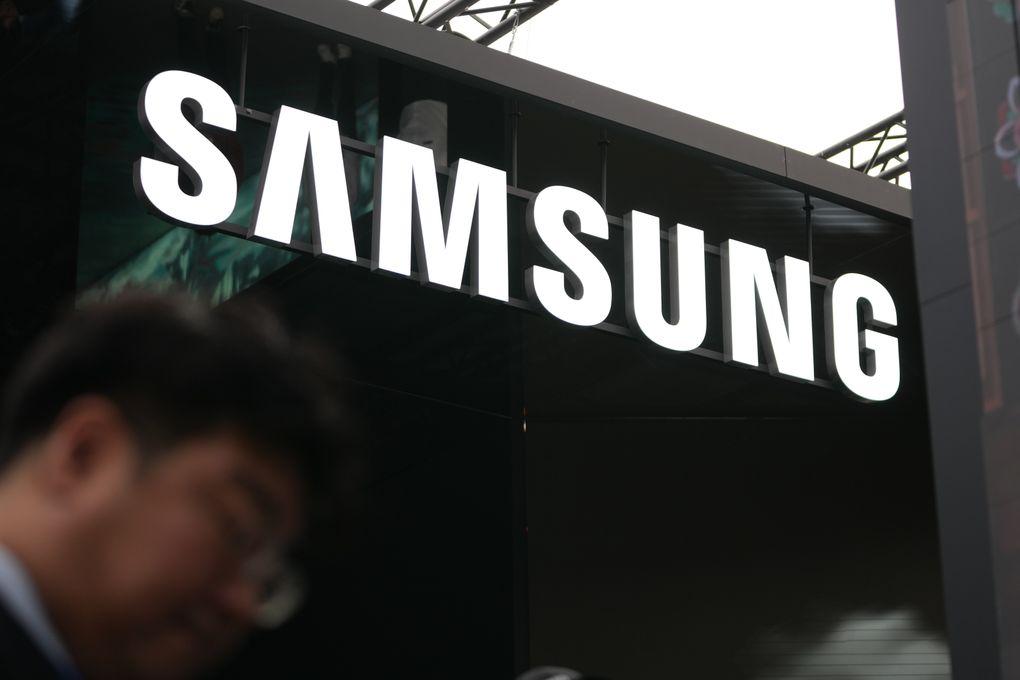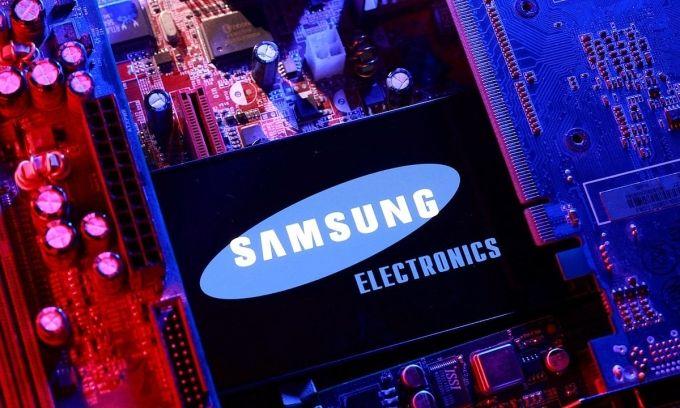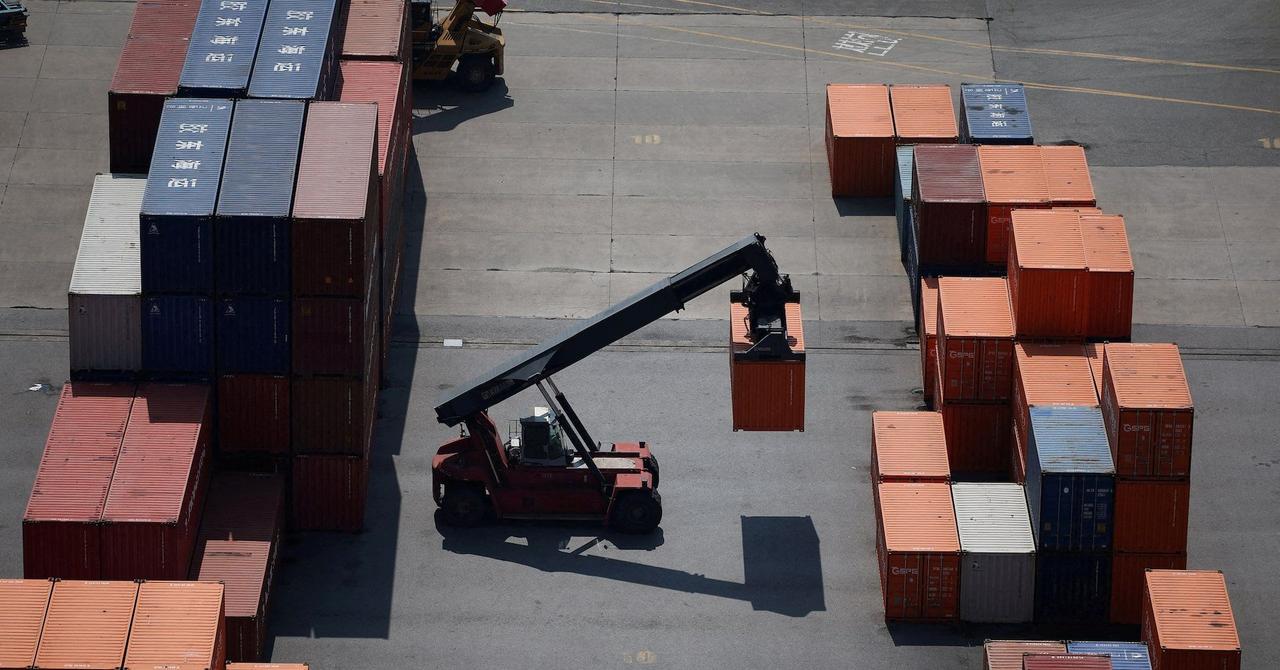Samsung and Hyundai Announce Major Domestic AI Investments Following US-South Korea Trade Deal
4 Sources
4 Sources
[1]
Samsung and other South Korean firms pledge larger domestic investments after US tariff deal
SEOUL, South Korea (AP) -- Samsung Electronics and other major South Korean companies on Sunday announced fresh domestic investment plans at a meeting with President Lee Jae Myung, who hopes the moves will counter concerns that the firms would prioritize U.S. investments under a trade deal. Lee's meeting with business leaders came days after his government finalized a trade deal with the United States, in which Seoul pledged to invest $350 billion in U.S. industries in exchange for averting the Trump administration's highest tariffs. Samsung, a global leader in computer chips, said it will invest 450 trillion won ($310 billion) over the next five years to expand its domestic operations, including building another production line at its Pyeongtaek manufacturing hub to meet surging global semiconductor demands fueled by artificial intelligence. Samsung said the new line, set to begin operations in 2028, is part of its broader effort to secure additional production capacity in anticipation of rising mid- to long-term demands for memory chips. The company also plans to build AI data centers in the country's southwest South Jeolla Province and the southeastern city of Gumi to support government efforts to reduce the development gap between the greater Seoul metropolitan area and other regions. Hyundai Motor Group, South Korea's largest automaker, said it plans to invest 125 trillion won ($86.3 billion) from 2026 to 2030 to expand domestic research and development and advance new technologies such as AI, robotics and self-driving cars. SK Group, another semiconductor powerhouse, and shipbuilders Hanwha Ocean and HD Hyundai also announced plans to increase their domestic investments. Both are central to South Korean commitments to boost the U.S. shipbuilding industry, a sector highlighted by President Donald Trump in negotiations with Seoul. In his meeting with the companies' chiefs, Lee credited the business sector for helping his government negotiate the trade deal with Washington but urged the companies to maintain strong domestic investments to ease concerns they might cut spending at home to invest more in America. He said his government is exploring various policy steps, including easing regulations, to help create a more favorable business environment for the companies. SK Chair Chey Tae-won, whose group plans to invest at least 128 trillion won ($88.3 billion) domestically through 2028 with a focus on AI, said the finalization of trade talks with the United States eases uncertainties and paves way for bolder domestic investment. The two governments on Friday released the details of the trade agreement, including $150 billion in South Korean investments in the U.S. shipbuilding sector and an additional $200 billion in other American industries, which Seoul says will be capped at $20 billion per year to prevent financial instability. The United States agreed to reduce tariffs on South Korean cars and auto parts from 25% to 15%, and to apply tariffs on South Korean semiconductors on terms "no less favorable" than those granted to comparable competitors in the future.
[2]
Samsung, Hyundai Announce Domestic Investments After US-South Korea Trade Deal
SEOUL (Reuters) -Samsung Electronics, Hyundai Motor and other major South Korean manufacturers on Sunday unveiled domestic investment plans, as a U.S. trade deal raised concern investment in the U.S. could weaken manufacturing at home. Samsung Electronics will add a chip production line at its plant in the South Korean city of Pyeongtaek to meet rising demand amid the global boom in artificial intelligence, as part of the parent group's 450 trillion won ($310.79 billion) investments at home over the next five years, the company said. Samsung's announcement came as South Korean President Lee Jae Myung held a meeting on Sunday with the country's business leaders, after a U.S. trade deal including a South Korean promise to invest $350 billion in U.S. strategic sectors was finalised on Friday. "There are concerns that domestic investment might shrink as U.S.-bound investments strengthen," Lee said at the meeting, as he asked companies to consider domestic investments more. The president also asked companies to consult with the government to make good use of the $350 billion investment package for their overseas investments. "Samsung will raise domestic investment, create quality jobs for young people and make even more efforts for a win-win with small and medium-sized, as well as venture companies," Samsung Electronics Chairman Jay Y. Lee said. At the meeting, Hyundai Motor Group announced domestic investments worth 125.2 trillion won from 2026 to 2030, while shipbuilders Hanwha Ocean and HD Hyundai also unveiled investment plans. The new Samsung factory, which will make memory chips, will cater to demand for traditional and AI servers, a spokesperson said. Semiconductor prices are surging, as the global rush by chipmakers to produce AI chips tightens supply of those needed for smartphones, computers and servers. Samsung Electronics this month raised prices of certain memory chips by as much as 60% compared to September, two people with knowledge of the hikes have told Reuters. The new production line, or the P5 plant, part of the world's biggest chip complex, had been delayed since late 2023, as demand slowed for chips for smartphones and PCs, and oversupply, according to public filings of its builder, Samsung C&T. Mass production at the P5 plant will begin in 2028, the South Korean chipmaker said, adding that it also plans additional infrastructure investments to support expanded operations. "With the global AI era entering full scale, Samsung Electronics anticipates a mid- to long-term expansion in demand for memory semiconductors. In order to respond promptly to market changes, the company intends to secure production lines in advance," Samsung Electronics said in a statement. ($1 = 1,447.9300 won) (Reporting by Jihoon Lee, Heekyong Yang and Hyunjoo Jin; Editing by Kate Mayberry and William Mallard)
[3]
Samsung, Hyundai announce domestic investments after US-South Korea trade deal - VnExpress International
Samsung Electronics will add a chip production line at its plant in the South Korean city of Pyeongtaek to meet rising demand amid the global boom in artificial intelligence, as part of the parent group's 450 trillion won (US$310.79 billion) investments at home over the next five years, the company said. Samsung's announcement came as South Korean President Lee Jae Myung held a meeting on Sunday with the country's business leaders, after a U.S. trade deal including a South Korean promise to invest $350 billion in U.S. strategic sectors was finalized on Friday. "There are concerns that domestic investment might shrink as U.S.-bound investments strengthen," Lee said at the meeting, as he asked companies to consider domestic investments more. The president also asked companies to consult with the government to make good use of the $350 billion investment package for their overseas investments. "Samsung will raise domestic investment, create quality jobs for young people and make even more efforts for a win-win with small and medium-sized, as well as venture companies," Samsung Electronics Chairman Jay Y. Lee said. At the meeting, Hyundai Motor Group announced domestic investments worth 125.2 trillion won from 2026 to 2030, while shipbuilders Hanwha Ocean and HD Hyundai also unveiled investment plans. The new Samsung factory, which will make memory chips, will cater to demand for traditional and AI servers, a spokesperson said. Semiconductor prices are surging, as the global rush by chipmakers to produce AI chips tightens supply of those needed for smartphones, computers and servers. Samsung Electronics this month raised prices of certain memory chips by as much as 60% compared to September, two people with knowledge of the hikes have told Reuters. The new production line, or the P5 plant, part of the world's biggest chip complex, had been delayed since late 2023, as demand slowed for chips for smartphones and PCs, and oversupply, according to public filings of its builder, Samsung C&T. Mass production at the P5 plant will begin in 2028, the South Korean chipmaker said, adding that it also plans additional infrastructure investments to support expanded operations. "With the global AI era entering full scale, Samsung Electronics anticipates a mid- to long-term expansion in demand for memory semiconductors. In order to respond promptly to market changes, the company intends to secure production lines in advance," Samsung Electronics said in a statement.
[4]
Hyundai Motor announces $86 billion investment in South Korea after US trade deal
SEOUL (Reuters) -Hyundai Motor Group will invest 125.2 trillion won ($86.47 billion) in South Korea from 2026 to 2030, the automaker said on Sunday after Seoul finalised a trade deal reducing U.S. tariffs on South Korean autos to 15% from 25%. That compares with investments by Hyundai Motor and its group affiliate Kia Corp of 89.1 trillion won from 2021 to 2025, according to the group. South Korean President Lee Jae Myung met with Hyundai Motor Group Chairman Euisun Chung and other business leaders on Sunday, two days after details were released on the trade deal, which includes South Korea's promise to invest $350 billion in U.S. strategic sectors. "We are well aware of concerns about exports declining and domestic production shrinking due to U.S. tariffs of 15%," Chung said after the meeting. "We will diversify export markets, increase exports from domestic factories and more than double auto exports through new electric-vehicle factoies by 2030," Chung said, adding that the group will also provide support to auto parts makers hit by President Donald Trump's tariffs. Of Hyundai's domestic investments, 50.5 trillion won ($35 billion) will be in AI and other future business opportunities, 48.4 trillion won in research and development, and 36.2 trillion won on optimising production facilities and building a skyscraper, the group said. (Reporting by Jihoon Lee; Editing by William Mallard)
Share
Share
Copy Link
Samsung pledges $310 billion over five years including new AI chip production lines, while Hyundai commits $86 billion through 2030 for AI and autonomous vehicle development. The investments come as South Korea balances domestic manufacturing with $350 billion US commitments under a new trade agreement.
Major Investment Commitments Following Trade Agreement
South Korea's largest technology and automotive companies announced substantial domestic investment plans following the finalization of a comprehensive trade deal with the United States. Samsung Electronics pledged 450 trillion won ($310 billion) over the next five years, while Hyundai Motor Group committed 125.2 trillion won ($86.5 billion) from 2026 to 2030
1
2
.
Source: Seattle Times
The announcements came during a Sunday meeting between South Korean President Lee Jae Myung and business leaders, just days after Seoul finalized a trade agreement requiring $350 billion in US investments in exchange for reduced tariffs. Under the deal, the United States agreed to lower tariffs on South Korean automobiles and auto parts from 25% to 15%, while providing favorable semiconductor tariff terms
1
.Samsung's AI-Driven Semiconductor Expansion
Samsung Electronics will construct a new memory chip production line at its Pyeongtaek manufacturing complex, designated as the P5 plant, with mass production scheduled to begin in 2028. The facility will produce memory semiconductors for both traditional servers and AI applications, responding to surging global demand driven by artificial intelligence development
2
3
.
Source: VnExpress
The P5 plant construction had been delayed since late 2023 due to reduced demand for smartphone and PC chips, along with market oversupply conditions. However, the global AI boom has dramatically shifted market dynamics, with Samsung raising memory chip prices by up to 60% compared to September levels
2
.Samsung also plans to establish AI data centers in South Jeolla Province and Gumi city, supporting government initiatives to reduce regional development disparities. Samsung Electronics Chairman Jay Y. Lee emphasized the company's commitment to creating quality jobs for young people and fostering partnerships with small and medium-sized enterprises
1
.Hyundai's Future Technology Focus
Hyundai Motor Group's 125.2 trillion won investment represents a significant increase from the 89.1 trillion won invested between 2021-2025. The allocation includes 50.5 trillion won for AI and future business opportunities, 48.4 trillion won for research and development, and 36.2 trillion won for production facility optimization and infrastructure development
4
.
Source: Market Screener
Chairman Euisun Chung addressed concerns about potential domestic production declines due to the 15% US tariff rate, announcing plans to diversify export markets and double automobile exports through new electric vehicle factories by 2030. The company will also provide support to automotive parts suppliers affected by the trade policy changes
4
.Related Stories
Broader Industry Participation
SK Group, another major semiconductor manufacturer, announced plans to invest at least 128 trillion won ($88.3 billion) domestically through 2028, with particular emphasis on AI technologies. SK Chair Chey Tae-won noted that the finalized trade agreement reduces market uncertainties and enables more aggressive domestic investment strategies
1
.Shipbuilding companies Hanwha Ocean and HD Hyundai also unveiled investment plans, reflecting their central role in South Korean commitments to strengthen the US shipbuilding industry. The trade agreement includes $150 billion in South Korean investments specifically targeting the American shipbuilding sector
1
.Government Policy Response
President Lee acknowledged business sector contributions to successful trade negotiations while expressing concerns about potential domestic investment reductions. He urged companies to maintain strong home market commitments and announced government exploration of regulatory reforms to create more favorable business environments
1
.The government structured the $350 billion US investment commitment with annual caps of $20 billion to prevent financial instability, while securing semiconductor tariff terms comparable to other international competitors
1
.References
Summarized by
Navi
[1]
[3]
Related Stories
Tesla and Samsung Ink $16.5 Billion Deal for Next-Gen AI Chips
28 Jul 2025•Technology

Hyundai Motor Group plans $7 billion South Korea investment in AI, robotics and hydrogen
Yesterday•Business and Economy

Samsung Commits $310 Billion to AI Infrastructure with New Pyeongtaek Chip Facility
17 Nov 2025•Business and Economy

Recent Highlights
1
Google Gemini 3.1 Pro doubles reasoning score, beats rivals in key AI benchmarks
Technology

2
Meta strikes up to $100 billion AI chips deal with AMD, could acquire 10% stake in chipmaker
Technology

3
Pentagon threatens Anthropic with supply chain risk label over AI safeguards for military use
Policy and Regulation





